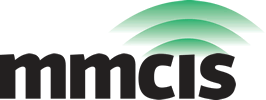Search Engine Tutorial
Welcome to the MMCIS Search Engine Tuturial. This tutorial has been designed to give you some basic information about search engines. You should read the information below as well as other information on search engines before writing the text for your site. This way you will have an idea of what the content of your site should include and how it should be laid out. We use www.searchenginewatch.com as our main source of SEO information.
Things you should know:
It takes anywhere from 2-8 weeks for a site to get indexed after it is submitted.
Each search engine/directory has its own rules for determining what pages to return, but for all of them, the words/phrases must be on the page for them to be indexed.
Search engine coding has changed over the last few years. The major search engines no longer look at the META keyword tags, so the ONLY phrases/words that get indexed are those in the text and in the page title. Content is king. So make a list of the key phrases you want to score high on, and then to go through the content and make sure those phrases are present in the text. For each phrase, you should specify which page(s) are the ones they would most want to see as the results for a search using that key phrase.
We submit to:
- Google - www.google.com
- Microsoft Bing- http://www.bing.com/
and others if you have a special situation.
We can also help you with paid placements on Google Adwords and similar programs.
Tips for making your page more favorable:
These two articles contain good basic information on crafting the content to enhance search engine optimization:
- Search engine optimization
- Search engine submission tips, especially the section on Search Engine Design Tips
Position Your Keywords
Make sure your strategic keywords appear in the crucial locations on your web
pages. The page title is most important, but just as important are the
headings and text. Failure to put strategic keywords in the page title
is the main reason why perfectly relevant web pages may be poorly ranked.
Pick Your Strategic Keywords
How do you think people will search for your web page? The words you imagine
them typing into the search box are your strategic keywords. For example,
say you have a page devoted to stamp collecting. Anytime someone types "stamp
collecting," you want your page to be in the top ten results. Then those
are your strategic keywords for that page.
Have Relevant Content
Changing your page titles and headings is not necessarily going to help your
page do well for your strategic keywords if the page has nothing to do
with the topic. Your keywords need to be reflected in the page's content.
Search Engines vs. Open Directories
A search engine visits a web site, then lists each page from a site independently from each other. Ranking depends on the content of the page. In contrast, a directory (such as yahoo, open directory project, and looksmart) accepts submissions that describe an entire web site, not individual pages. You fill out a form with information about your site. This is reviewed by an editor and, if approved, is added to the directory.
A good starting point to determine what category you think would be best for you is to go to Yahoo and Looksmart or which ever directory you want placement in, and decide on a category that you think is appropriate. Perhaps search for other businesses or keywords in your field and see where they are placed.
What we need from you:
- 10-15 key phrases about your site and/or business.
- For each key phrase identify the page or pages you want to have associated with that phrase. Make sure that any one page is associated with at most two phrases. (In other words a page address should appear no more than twice in the right column.)
- 25 word (255 characters) or less description to be used with the open directory search engines.
- contact name and email for some search engine submissions.
- if you would like to submit to any search engines not listed at the top of the page, please let us know.
Example key phrases list
| website administration | http://www.mmcis.com http://www.mmcis.com/About/services.html |
| Managed email | http://www.mmcis.com/Resources/faq.html |
| Search engine optimization | http://www.mmcis.com/Resources/searchEngineTutorial.html |
Paid placements
In addition to the free placements, you might want to look at the benefits of paid placements. Each of the major engines has a program where you can pay to have your site returned as a result for the specified key phrases. Google's Adword program is one example. Since these results are usually distinguished in some fashion from the unsponsored links, many people don't even look at them. Obviously some people think they are getting a fair return on their investment since people are spending billions of dollars on these placements.
If you are thinking about any of these programs, let us know and we can work with you to make sure you are getting the most from the investment. This can include constructing special landing pages so you can track the hits from our server side rather than just relying on the stats you get from the search engine vendor. Several of the major search engine programs also require the placement of tracking code in the pages on your site and we can help with that.
